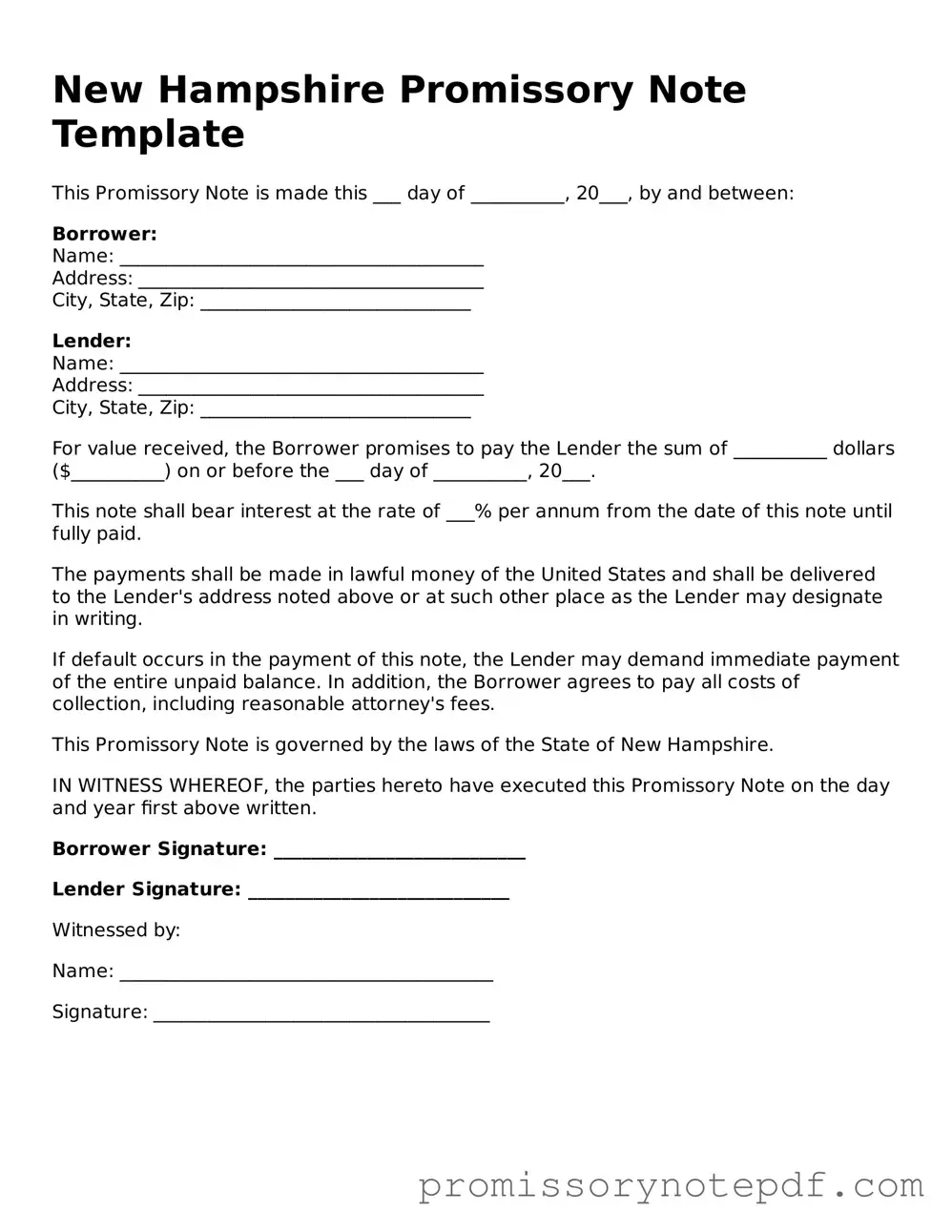The New Hampshire Promissory Note form bears similarities to a Loan Agreement. Both documents establish a borrower-lender relationship, detailing the terms under which funds are borrowed and repaid. A Loan Agreement typically includes information about the loan amount, interest rate, repayment schedule, and any collateral involved. Like a promissory note, it serves as a legal commitment to repay the borrowed amount, but it often contains more extensive terms and conditions, making it a more comprehensive document.
Another document comparable to the New Hampshire Promissory Note is the Secured Promissory Note. This type of note includes a security interest in an asset, meaning the lender can claim the asset if the borrower defaults. Both documents outline the borrower's promise to repay, but the Secured Promissory Note provides additional protection for the lender by specifying collateral. This added layer of security can make it easier for lenders to offer favorable terms.
The Unsecured Promissory Note is also similar, as it involves a borrower's promise to repay a loan without any collateral backing it. While the New Hampshire Promissory Note may or may not be secured, the Unsecured Promissory Note explicitly states that no assets are pledged. This type of note often carries a higher interest rate, reflecting the increased risk to the lender. Both documents are legally binding and require the borrower to fulfill their repayment obligations.
A Demand Note is another related document. This type of note allows the lender to request repayment at any time, without a fixed schedule. While the New Hampshire Promissory Note may have a set repayment plan, a Demand Note offers flexibility for the lender. Both documents establish a borrower’s obligation to repay, but the terms of repayment differ significantly, with the Demand Note prioritizing the lender’s immediate access to funds.
The Installment Note shares similarities with the New Hampshire Promissory Note in that it outlines a borrower's promise to repay in regular installments. Both documents specify the total amount borrowed and the repayment terms. However, an Installment Note typically breaks down the repayment into scheduled payments over time, while a standard promissory note may allow for a lump-sum payment at the end of the term. This structure can help borrowers manage their cash flow more effectively.
A Business Loan Agreement is also akin to the New Hampshire Promissory Note, particularly when it involves loans for business purposes. Both documents detail the terms of a loan and the obligations of the borrower. However, a Business Loan Agreement often includes additional provisions tailored to the needs of businesses, such as covenants and conditions that must be met throughout the loan period. This makes it a more specialized document, although the core principle of repayment remains consistent.
Lastly, a Convertible Note is similar to the New Hampshire Promissory Note in that it represents a loan that can be converted into equity. This type of note is often used in startup financing. While both documents outline a borrower's obligation to repay, the Convertible Note includes terms that allow the lender to convert the debt into shares of the company under certain conditions. This introduces an element of investment potential that is not typically found in standard promissory notes.
